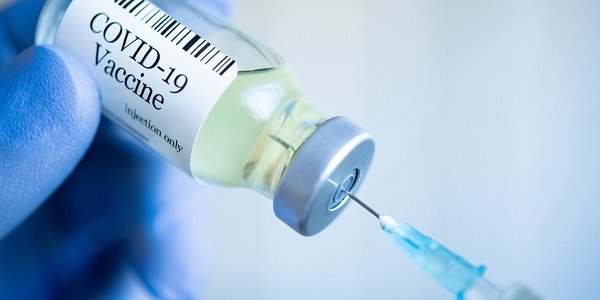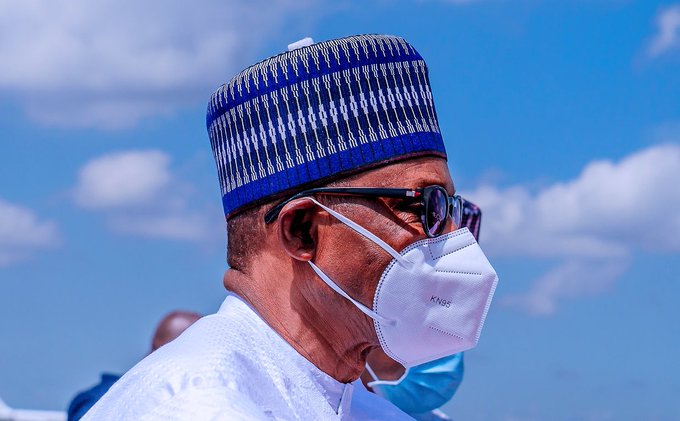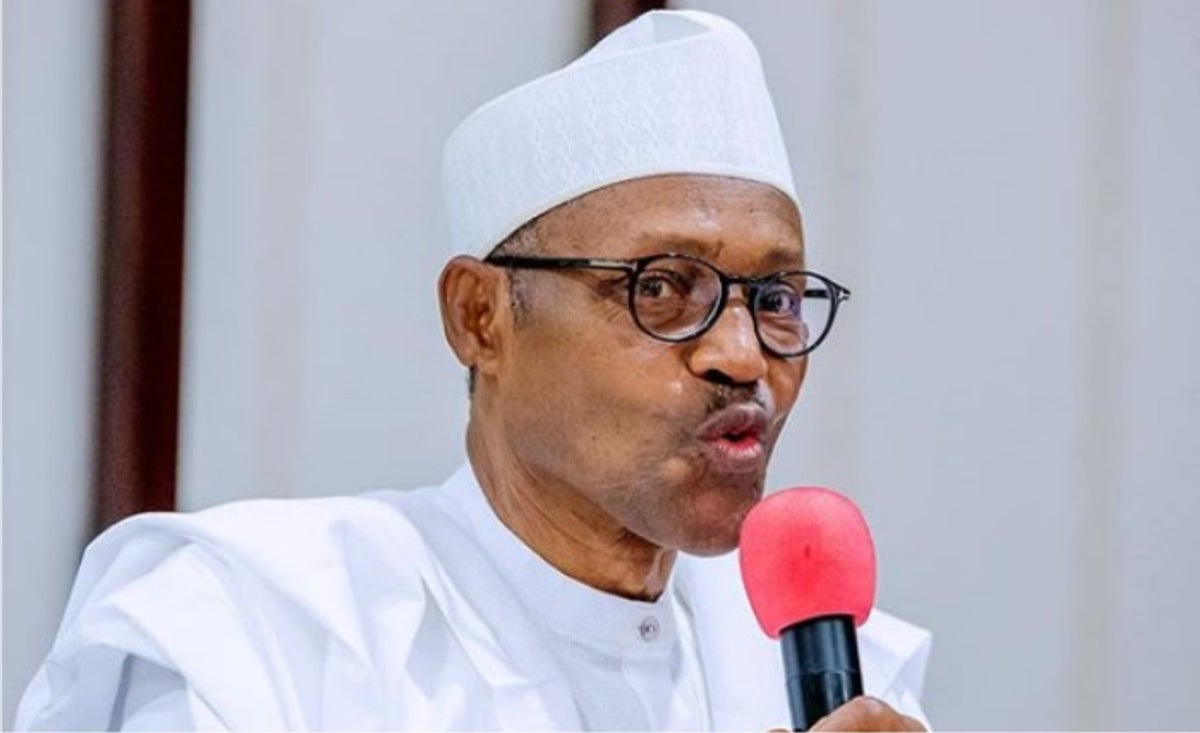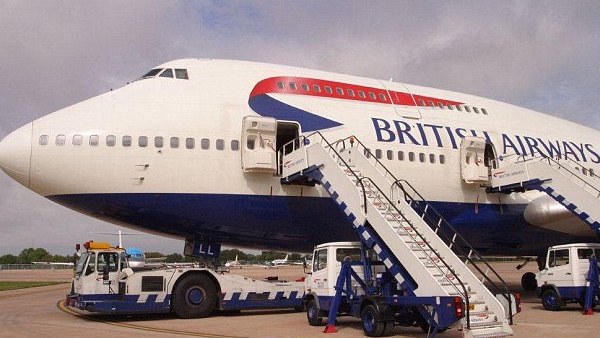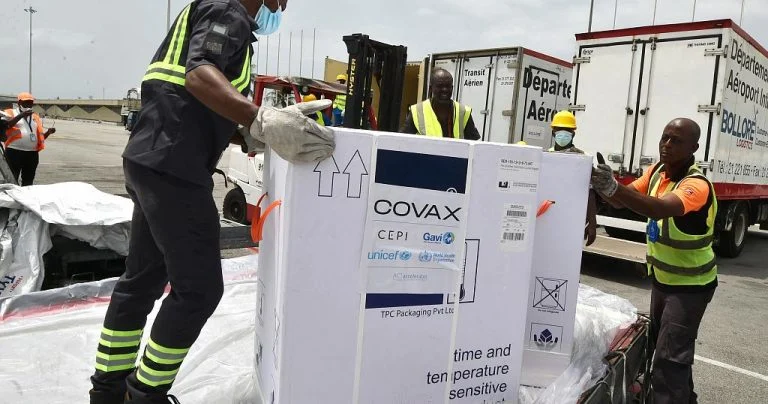By magnus onyibe
In the very popular Bob Marley song: Redemption Song. The lyrics goes thus; “how long shall they kill our prophets while we stand aside and look? “
If you substitute the word prophets for masses in the music maestro’s scintillatingly and solemnly rendered lamentation song , he might have been singing about Nigeria of today , even though the music was sang and released in June 1980-some forty years ago.
And the reason the lyrics of the song would resonate in Nigeria is owed to the reality of the fact that a similar circumstance of life at its most horrific level- slavery and colonialism that prompted Marley to sing his song of agony is here with us in Nigeria, the land of our birth which has been transformed into a killing field . Unlike white oppression that Marley was wailing about , the misery is not being brought upon us by external forces. But by our own people with extremist views and therefore at war with society by committing atrocities that debase human lives and demonstrate complete loss of value of life as our country has become a sort of war zone . And this season of weeping and gnashing of teeth has come upon the entire nation like a boar constrictor , that has wrapped its body around its victim and it is squeezing breathe out of him/her , at the same time breaking all the bones in the victim’s body , which by any measure can only be excruciatingly painful and gruesome.
While in Bob Marley’s song he wailed about prophets being killed,the current reality in Nigeria is that the innocent and hard working masses are being butchered in droves in the past ten (10) years or thereabouts of the malaise being brought upon us.
And it would appear as if the outlaws- terrorists,bandits , known and unknown gun men are getting bolder in their evil enterprise as they are currently setting their eyes on leaders,(of the political hue) currently being killed by the violent elements.
And the evidence of the ugly phenomenon evolving is the recent assassination of a commissioner/ cabinet member of katsina state government ,Dr.Rabe Nasir Bindawa a fortnight ago. Barely a week after that incident , a law maker from Kaduna state, Mr. RilwanuGadagau was also murdered by terrorists as he traveled between Kaduna to Zaria. As the festive seasons of Xmas and New Year are now upon us , politicians that have been dwelling in the safety of Abuja would be going back to meet with the long suffering members of their constituents in their homesteads where intense acts of terrorism, in the dimension of hurly burly is being unleashed on the defenseless masses.
In the light of the two recent killings of members of the executive and legislative arms of government in both katsina and Kaduna states highlighted earlier , it is not beyond the marauding outlaws to seize or kill a governor very soon.
The suspicion that politicians are being targeted is not being made up by me. The Directorate of State Services, DSS recently issued that alert via a press release.
The merchants of death , for lack of a better terminology to characterize them, might have failed in the past attempts to take the lives of professor BabaganaUmaraZulum and Mr Samuel Ortom, both of whom are governors of Borno and Benue states respectively that were attacked in the recent past.
And they only escaped by the whiskers from the dragnets of the bandits now officially branded terrorists by the authorities in Abuja.
But the terrorists are getting bolder.
Having not been able to kidnap or kill a governor or other high ranking politicians by ambush on the road or while attending a public event , as was the case of professor Chukwuma Soludo, governor-elect of Anambra state whose police aides were killed in an attack during his campaign for office and Mr Hope Uzodinma , governor of lmo state whose country home was recently razed down by arsonists that after his life , they may even soon attack a governor’s lodge or government house in the north or south east.
The reasoning above is also not far fetched.
And it is underscored by the fact that if they succeeded in attacking Nigerian Defense Academy , NDA-the premier military training institution in Nigeria that is supposed to be as impregnable as Fort Knox and abducted a serving army major , after killing a couple of other residents , why won’t they attack a government house or governor’s lodge ? Terrorists are on record to have also shot down a Nigerian air force fighter jet from which a brave pilot successfully ejected and managed to return safely to base after search and rescue team scouted the forests for him.
Did someone not reveal that the army paid the terrorists a huge sum of money to retrieve from them, a rocket propelled weapon that could bring down airplanes?
The military reportedly has been so worried about the suspicion that terrorists possess such a weapon that poses grave threat to the president and commander in chief of the armed forces of Nigeria who travels frequently on that route to his home stead in Daura , that it paid a huge some of money to get the ‘bazooka’ off their hands.
Since the claim was reported in the media , the military has repudiated it. Perhaps because it is inelegant, or it may be a mere ruse. But the suspected development is very disconcerting simply because , as the saying goes, there is no smoke without fire. Also , perception can sometimes become reality.
The Katsina State Governor and Chairman, North West Governors’ Forum, Aminu Bello Masari, who in the face of unbridled killing , raping and maiming of defenseless and innocent indigenes of his state by terrorists, had advised his compatriots to arm themselves up to defend themselves. Because bearing of fire arm by non members of the armed forces was against the laws of our country , there was public condemnation of the proposition by the governor who was obviously compelled to float the idea as a reflection of his desperation, to save his people since the armed forces whose duty it is to protect life and property has failed them . Following the renewed onslaught by the outlaws , Masari has again doubled down on his call on citizens to bear arms in self-defence to curb the overwhelming security threat , particularly in northern Nigeria, and which is also rapidly taking hold in south east Nigeria.
His Sokoto State counterpart , Governor, Aminu Waziri Tambuwal, has also, perhaps arising from a sense of desperation after 23 (by another account,the casualty number is higher ) innocent passengers in a transport bus were shot by terrorists and set ablaze inside the bus in which they were traveling, also told a delegation of security apparatchik from the presidency that government should bring back South African mercenaries, who former President Goodluck Jonathan had contracted to flush out Boko Haram
insurgents from their Sambisa forest base, where they first made their home .
In the same bid to combat terrorism ,but from a different perspective , Kano
State governor , Abdullahi Umar Ganduje, who has identified reserved forests in the northern part of the country as home to the criminal elements,also called for the reclaiming of forests by governments through what he characterized as full ownership.The Kano governor’s proposition about taking over forests is in tandem with the sultan of Sokoto , His Eminence , SaadAbubakar’s suggestion that the military should make deliberate efforts to occupy all the forests so that they would cease to be haven for terrorists . And that position reinforces my plea in a previous media intervention that all forests should be converted to farms not only for the purpose of preventing terrorists from converting them to their abodes, but also as a verifiable source of food for the masses through active cultivation of the wild forests as farms to feed the nation .
Not many of us consider taking ownership of the forests from the prism of its playing the dual purpose of solving the problem of insecurity and at the same time taking care of another critically important challenge-food insecurity, which is a corollary to the scourge of insecurity of lives and properties afflicting a critical mass of Nigerians.
Here is how l made the case in an article titled “Pastoralists and Farmers’ Conflicts in Nigeria: Time for Fulani Capitalism, Not Herdsmen Terrorism”which l wrote and published widely in the mass media on February 15, 2021 by Vanguard and other platforms.
“Before proceeding to the nitty-gritty, permit me to introduce you to the concept of Fulani-Capitalism, which is a variant of AfriCapitalism – a pseudo or hybrid business/social investment model being promoted by Tony Elumelu, chairman of Heirs Holdings.
As earlier stated, the underpinning philosophy behind Fulani- Capitalism is similar to the raison d’être for Africapitalism, which is the creation of job opportunities for Africans by Africans in ways that the host communities of the business are not exploited but empowered by the presence of the corporate entity – A sort of symbiotic relationship
between entrepreneurs and host communities.
Fulani-Capitalism is conceptualised to catalyse and drive the
concept of cattle ranching to discourage or displace the current nomadic practice of animal husbandry. It is so named because it is the Fulani that is undeniably, inherently the predominant pastoralists in Nigeria.
The whole idea is to overtly or covertly persuade the well- heeled or deep pocket Fulani men and women to strategically invest in ranches to facilitate the change of the lifestyle of the nomadic herdsmen and offer them more reliable as well as better return on their investments and efforts.
Given the strategic role that cattle ranches, (as opposed to nomadic animal husbandry) can play in stemming the ugly side of human carnage arising from herdsmen killings, investing in ranches (confining animal husbandry within a farming space) by successful men/women of Fulani extraction needs no further elucidation because it is both a social and economic investment.
By this, I mean that rather than wait for the government to set up ranches, Fulani men and women of means (who are in their legions) should make deliberate and conscious effort to invest in ranches, which would serve as sanctuaries for cows and those who tend them because it is financially rewarding.
Aside from the financial returns, it would serve as a veritable means for safeguarding the livelihood of their people whose mainstay is animal husbandry, and which they are still practising in the same nomadic and primitive manners that their forebears did centuries ago and now constituting a threat to peace and security.
So far, the balance of loss of human lives is in favour of the herdsmen who are rampaging all over the country, particularly the Sahel and plateau (for their green pastures) and leaving sorrow,
blood, and grief in their trail. But the first mover advantage which the herdsmen are currently enjoying would not be perpetual, if and when their victims begin to fight back.
In light of the frightening prospect of the conflict escalating to unimaginable proportions, how do we avert what seems like an inevitability if the killings by herdsmen go on unabated? I’m convinced that Nigeria can move from the current state of chaos to community through a strategy of shared social investments. That’s assuming we are ready to change how animal husbandry is practised by leveraging science, technology and capitalism.”
It is rather heartening that northern states governors seem to be paying attention and taking my advise to heart by establishing or being in the process of establishing ranches as recommended which why herdsmen-farmers bloody clashes have somehow abated lately .
Hopefully, taken full ownership of the forests would entail inviting not only South African mercenaries to combat the criminal elements , as Tambuwal has demanded , but also South African, Zimbabwean , Brazilian and even Israeli farmers (Muslims in UAE are partnering with Israeli tech experts in Jebel Ali port) to convert the forests into farms to take care of the growing food insecurity also ravaging the masses in our country.
It is rather intriguing that barely a decade after the violent resistance to authorities by religious extremists led by the late Boko Haram leader , Mohammed Yusuf somewhere around Maiduguri , Borno state, north east Nigeria, religious insurgency has like a malignant tumor metastasized into an unmanageable cancer which is gnawing not only at the core of the northern region where it was originally confined; but also the eastern part of our country that has also lately assumed the nature of a cauldron of sorts. And the violence in the South Eastern flank of the country driven by secessionism is also exacting high death toll. Alarmingly, it is also aping the pattern in the north ,as separatism has degenerated into sundry criminal activities by known and unknown gun men crippling the south east region which it is holding by the jugular.
Considering the persistent scourge of murdering of traditional rulers in cold blood (which l understand is a sort of reprisal against them for betraying their members to security forces) in addition to the assassination of prominent figures ostensibly for defying the separatists rules, culminating in the dastardly act of beheading two active duty police men, and touching of police stations as well as similar government infrastructure and facilities like INEC office; the eastern part of our country has invariably become the hotbed of anarchy of unprecedented dimensions, except for the period of the civil war (1967-70.)
At this juncture , it is worth pointing out that escalation of violence in the north via Boko Haram, mimics the trajectory of the Niger delta militancy which degenerated after authorities failed to invite for negotiations,the intellectual and genuine environmental rights agitators such as Ken Saro-Wiwa. Rather than dialogue, he was executed along side other Ogoni leaders as felons.
Similarly, instead of having a conversation with the leader of Boko Haram whose members reportedly refused to comply with the state government’s directive to wear helmets for their own safety while riding motor bikes, he was allegedly murdered by the authorities, setting off an armed revolution threatening to overwhelm not only that of the north, but entire the country. And the current resort to the use of force instead of negotiating with the nation of Biafra agitators like NnamdiKanu , and Oduduwa nation proponent, Sunday Igboho; the current occupants of Aso Rock Villa seat of power seem to be treading the same path of perdition trodden by past leaders through resort to brute military force as their preferred crisis management tool, as opposed to applying the instrumentality of negotiated settlement .
Taking all the listed mayhem and human carnage in our country together, it is clear that the masses and our leaders at the subnational level have reasons to have lost faith in the ability of the military to protect them because, as a nation, we appear to be losing the war to the terrorists and secessionists. If nothing else, the twin demons have attracted opprobrium, locally and internationally to our country as we have been besmirched by the ugly news of mindless killings and the concomitant human rights abuses.
And nothing reflects the rapid erosion of the confidence of the masses in the ability of the military to win the war against the terrorists, more than the fact that citizens have accepted to be paying tax to terrorists that have become more brazen by hoisting their flags, (not just in far flung locations in the forests) in locations as close as Niger and Nasarawa states , all of which are adjacent or contiguous to the Federal Capital Territory , FCT- Abuja.
Again, this is not made up by me , but based on public complaints by victims and the admission by the state governments in statements available in the open media space .
That a de facto government set up by outlaws are demanding loyalty from indigenes and receiving same with full compliance from our fellow compatriots who are reportedly being treated like prisoners of war, is an existential reality that is very unnerving .
Obviously, the Nigerians being oppressed in those locations, perhaps feel better off than those in lnternally Displaced Peoples, IDP camps or in their early graves for failure to comply with the terrorists .
Put succinctly , there is rule of the bandits in the captured areas instead of rule of law in the cities, probably yet to fall to the arsonists, if action through a different and aggressive approach is not adopted sooner than later.
Now, before our beloved country’s degeneration into what looks like an active war theatre , Nigerians were regaled with the allegations that the funds (to be precise $1.2b) meant to have been applied in purchasing arms and ammunitions to fight Boko haram was converted into campaign slush funds by the National Security Adviser, NSA to the former president, Col Sambo Dasuki for the re-election of the former ruling party, PDP , hence our military was ill equipped to successfully take on and defeat Boko insurgents. The impression was created that, as soon as the requisite strategic weapons were acquired, the terrorists would be wiped out.
But six years into the eight years tenure of the regime that defeated the one that allegedly misappropriated the funds budgeted for the procurement of weapons to defeat the terrorists, our military has not been able to flush out the increasingly menacing terrorists to justify the huge sums of money that has recently been invested in the acquisition of sophisticated weaponry, including hardwares like the super Tucano jet bombers, that have been deployed without changing the game in any significant way? That to me suggests that lack of weapons may not be the overarching reason for our country’s inability to defeat religious insurgents and separatists. To demonstrate how super equipped the military has become , it should be noted that some armaments which Western countries had initially resisted selling to Nigeria’s military for fear that they may be used to perpetrate human rights abuses, have now been made accessible to them.Yet insecurity has not abated. Rather our country has witnessed upsurge in bloodbath that has made the earth around the country crimson by the blood of the innocent Nigerians being murdered on a daily basis .
What this dire situation suggests to me is that the failure to succeed in preventing the raging religious insurgency that started about 2009/10 which is about ten (10) years ago and has like a vicious virus mutated into variants, does not stem from lack of military weapons , as politicians would like the masses to believe. And it is neither a fall out of the weather induced arid condition in the Sahel that has made competition for land for farmers and herders more fierce; not even the inflow of small weapons from a failed states like Libya, Mali, Somalia etc, which authorities allude to. All of the identified factors are simply symptoms of the challenge. But the real problem is lack of robust and broad minded strategy by authorities to tackle the identified multiple challenges earlier highlighted.
Simply put, our country’s political leadership has been too narrowed minded in tackling insecurity where it should have been broad minded hence the military has had feet of clay.
It is important to keep in mind that l am not dwelling on the forgoing historical facts to spite the government in power or shame and diminish the military.
But my intention is to remind us of where we are coming from on the seemingly intractable crisis of insecurity that has engulfed our country like a wild fire in harmattan. Rather, I’m seeking to put the causative situation into perspective with a view to plotting the way forward through the creation and deployment of new strategies to win the war against terrorism.
In my view, it is about time we as a nation pivoted the apparently intractable crisis of insecurity that has obviously overwhelmed the military and government from the exclusive realm of politicians who are weaponizingit , (as reflected by the trading of blames between the current ruling and former ruling parties , APC and PDP) in the last decade to a multi prong, multi sectoral and departmental effort involving both military and non military expertise .
Already , the military has co-opted vigilante groups into its operations like civilian JTF very active in the north and civil defense formations such as Amotekun covering the south west states and EbubeAgu in the south east states evolving around the country. But it appears to me as if they are just being used for guard jobs and perhaps inadvertently as canon fodders , particularly around the numerous IDP camps in the north.
And they have suffered significant number of fatalities which may be unsustainable for a longer period .
Another group that has been co-opted by the military is hunters.
They too have basically served as compass for the military in the forests where hunters are more at home owing to the knowledge acquired in the course of their hunting expeditions.
Again, l have tried to give context to the effort that the military has made in expanding the execution of the war against terrorism beyond its horizon, in order to prove that it recognizes that it has been overwhelmed by the dynamic shapes and forms in which the war on terrorism has evolved over the past decade. Again, the aim is to validate the need to expand the scope of the government agencies and departments engaged in the war that has turned out to be the greatest threat to the continued corporate existence of our country, from solely a public sector function into a public/private sector challenge which it truly is.
After all , is it not often said by top Secuity functionaries that security is not the duty of government alone?
At a recent lecture held in commemoration of the 60th birthday of Akin Osuntokun, (who fits the text book definition of a public intellectual) titled: Consistency In Public Intellectual Advocacy: A Nigerian Case Study” which was delivered by Rueben Abati , a Thisday newspaper columnist and Arise tv anchor , professor Anya O Anya,
an erudite scholar and one time chairman of Nigerian Economic Summit Group, NESG, a man who has profound knowledge of what is wrong with Nigeria, in his contribution to the discussion pointed out that we have as a nation passed the stage of blaming our leaders for our woes. According to him, what we should be doing right now is to ask: what do we do?
I align with the elder statesman’s position.
Indeed , we as a people can do something by setting up a task force with a specific mandate to end insecurity in the country in the manner that the presidential Task Force to end COVID-19 pandemic was set up in 2019 by President Buhari and headed by Boss Mustafa, Secretary to the government of the federation with active participation by the private sector ,and driven by the Central Bank of Nigeria under the leadership of the governor, Godwin Emefiele.
It needs no repeating that the founding of CACOVID, a coalition of captains of industry or club of multi billionaires who injected not only billions of naira in funding, but also came up with strategies and implementation methodologies in the fight against COVID-19, contributed a great deal in stemming the spread of the deadly disease that has been on rampage globally in the two years.
It is still puzzling to experts in the Western world like Mrs Melinda Gates who had predicted that Nigerians would be dying on the streets like house flies from COVID-19 complications. But less than 3,000 lives have been lost in Nigeria to the pandemic in the nearly two years of its ruinous siege on humanity.
If you compare that paltry number (every life lost is one too many) to about a million lives lost to the same disease in the same period in the USA with an estimated population of about 320 million as against Nigeria’s 200 million where less than 3,000 died; it would be clear that the public , private sector partnership CACOVID was indeed an efficacious intervention responsible, in part, for substantially reducing the negative impact of Covid-19 in Nigeria .
There may be a need and justification for the current standing COVID-19 public /private sector Task Force to be transformed into a National Security Task Force to address the twin monster of terrorism and secessionism that have the capacity to and is fast ripping our country apart. In the United States of America, USA there is a law called the Patriot Act which empowers government to compel corporations to yield or their facilities towards producing war armaments. The law was recently invoked to fight COVID-19 pandemic by former President Donald Trump. Although that is not what l am advocating, corporate Nigeria had voluntarily yielded their financial resources towards the battle against covid-19 pandemic here.
Without a doubt , the CACOVID team is not only a collection of billionaires, but also a formidable repository of the best strategists in Nigeria. They may not be a repository of military skills , but war is about strategies and successful business men/women are basically proven strategists, hence they are able to come into the humongous wealth that they control. While the military prosecute the war , the CACOVID team of wise men/women can look at other ways (including negotiations) of restoring sanity and sanctity into our beleaguered polity and highly distressed society.
It is a plus that private sector involvement in security is not novel in Nigeria.
Lagos state government partnership with the private sector, (especially the financial services sector) to enforce security in the bustling city of Lagos, is instructive. It is therefore a model that could be adopted because it is largely responsible for the relatively high level of security of lives and properties from terrorists and bandits in the state-a reason lagos seem to be insulated from the current bedlam.
Now, if COVID-19 pandemic posed enough threat to lives such that it warranted the setting up of CACOVID to mitigate the risk to human capital, (essential for the sustenance of businesses) then insecurity of lives and properties that would constrain growth and also hobble the inflow of foreign direct investment that could have direct negative impact on the fortunes of the billionaire club members; must be a compelling reason for the team that made CACOVID a game changer in the war against COVID-19 pandemic, to join in the war against insecurity that has driven our country to the point of tipping her over, unless extraordinary measures are adopted.
I am not unaware that the private sector may loathe the idea of being involved in such a highly combustible matter of joining in the fight to save our country from collapse owing to the onslaught of religious insurgents and secessionists? Whereas , the concern that corporate sector involvement in national security has the tendency to trigger negative backlash which may be consequential to brand image is real, the potential benefits of winning the peace in our country in the long run outweigh the risk.
Comparatively, helping to save lives through strategic interventions via contribution of financial resources and strategy which CACOVID is about, is less contentious because it would rub off positively on the brand simply because doing good can be categorized as a cause related marketing strategy which evinces empathy that can be converted into brand love and loyalty.
Nevertheless, some situation requires that leaders sometimes make conscious efforts to think out of the box by choosing the road less travelled.
Helping save the country is one of the hard choices that the corporate world or club of billionaires would have to make. And choosing to save their businesses which would not thrive in an atmosphere of anarchy that our country is fast descending, is clearly one of those difficult, but necessary choices that they must make .
Again , it is apropos to reiterate that this call for private sector involvement in what is traditionally the purview of the military is not meant to be an indictment on our courageous men/ women in uniform that have acquitted themselves creditably in multiple local and international war theaters. And it is expected by human nature that the initial reflex of the military may be unwillingness or reluctance to share their constitutionally assigned role with ‘bloody civilians’ as soldiers like to refer to us less mortals .
But as it takes courage to make changes, ego or what some would characterize as foolish pride , and which l would like to refer to as profitless pride , the military has to accept to share space in a multi agencies and multi sectoral partnership to save our dear country.
The assertion above is underscored by the fact that we live in strange times. So we need to introduce extraordinary measures to triumph over certain obstacles.
The simple truth is that the private sector can no longer afford to take a laid back approach to the challenge of insecurity wracking our country, so it must take action to save Nigerians and thus protect itself-businesses.
With the foregoing narrative which is meant to shine light on the state of the nation , in terms of security , l expect that by now we would all ( politicians, military and captains of industry) be on the same page on this matter of terrorism, secessionism and criminality threatening to rip our beloved country apart.
Hopefully, it would be a new year gift to Nigerians when the critical stake holders highlighted earlier join in the struggle to pull our country back from the brinks.
ONYIBE, an entrepreneur, public policy analyst ,author, development strategist, alumnus of Fletcher School of Law and Diplomacy, Tufts university, Massachusetts, USA and a former commissioner in Delta state government, sent this piece from lagos.
